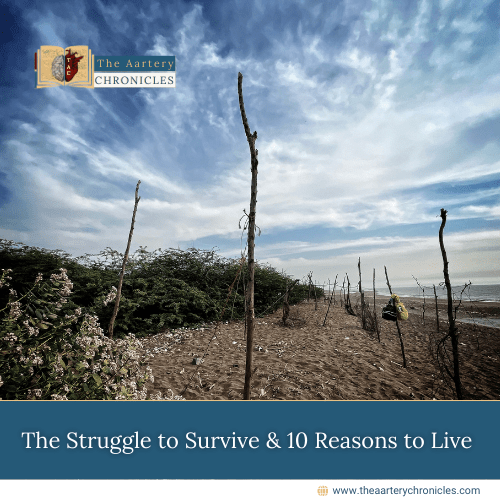

Chapter 2: The Virtues of Tourism
Throughout history, tourism has been both a boon and a bane, shaping our planet in myriad ways. In the previous chapter, we explored the perils of tourism, highlighting its detrimental effects on the environment and local cultures. However, it would be negligent to focus solely on the damaging aspects of this global phenomenon.
In this chapter, we delve into the virtues of tourism, emphasizing its potential to foster cultural exchange, stimulate economies, and cultivate a profound appreciation for natural beauty. We’ll also discuss the essential role that responsible and sustainable tourism practices play in mitigating the environmental challenges posed by the industry.
The Bright Side of Tourism
While tourism can undoubtedly have adverse effects, its virtues are equally significant and impactful.

1. Cultural Exchange:
Tourism serves as a bridge between different cultures, fostering understanding and empathy among people from diverse backgrounds. Travelers have the opportunity to immerse themselves in local customs, traditions, and lifestyles. This exchange enriches both the hosts and visitors, creating a global tapestry of shared experiences. It is always good to adapt and learn new cultures rather than corrupting everything with our ways of living. Give yourself a break and “go with the flow”.

2. Economic Growth:
Tourism is a mighty engine for economic development, especially in regions heavily dependent on it. It generates revenue through various channels, including accommodation, dining, transportation, and activities. Local businesses thrive, creating job opportunities and improving living standards for residents. This does not mean chopping down trees to make a 7-star Treehouse for the Tourists or making tunnels without proper scientific research and shreds of evidence.

3. Conservation Incentive:
Paradoxically, tourism can be a powerful force for conservation. The presence of tourists in natural and cultural heritage sites often prompts authorities and communities to protect these assets. Conservation efforts are strengthened when stakeholders recognize the economic value of preserving their unique attractions. This is a very crucial phenomenon and often speaks a lot about the authorities based on their plan of action and ways to enhance environmental conservation.

4. Community Empowerment:
Well-managed tourism, (“Well-managed”) can empower local communities by providing them with the means to showcase their heritage and talents. This can help in preserving traditional practices and crafts, ensuring they are passed down to future generations.

5. Infrastructure Development:
Tourist destinations often witness significant infrastructure improvements. Roads, airports, healthcare facilities, and educational institutions are upgraded to meet visitors' needs. These enhancements also benefit residents and enhance their quality of life. Again, being Mindful and logical is important while undertaking such projects.

6. Education and Awareness:
Travelling exposes people to new environments and challenges preconceived notions. It fosters a greater understanding of environmental issues, cultural diversity, and global interconnectedness. Travellers return home with broader perspectives and a heightened responsibility toward the planet. Well, how about learning while chilling? Better than getting wasted, right?
Guidelines for Sustainable Tourism
While acknowledging the virtues of tourism, it is imperative to ensure that the industry evolves responsibly. Sustainable travel practices are essential to minimize the negative impacts of tourism. Here are some guidelines for travellers to embrace while relishing their journeys:
Choose Sustainable Accommodations:
Opt for eco-friendly lodgings that implement energy-efficient practices and actively support local conservation efforts. Look for certifications such as Green Key or EarthCheck.
Travel Light:
Packing efficiently not only reduces the weight of your luggage but also lessens fuel consumption during transportation. Pack only what you need and minimize single-use items. Intellectuals, this does not mean leaving stuff at home and demanding for them later on. Make use of what’s available and enjoy the local amenities.
Reduce Single-Use Plastic:
Carry a reusable water bottle, shopping bag, and utensils to minimise plastic waste generated during your travels. Avoid using disposable plastic products whenever possible. I understand that the Paper bags are a total waste, but again..got to save what’s left to save, right?
Respect Local Cultures:
Prioritize understanding the customs and traditions of the places you visit. Be a respectful guest by adhering to local norms, dress codes, and etiquette. Difficult to understand this, I understand that we belong to the Social-Medial Era, and being trendy is the new black and stuff… but, TRY…
Support Local Communities:
Patronize local businesses, artisans, and markets to ensure that the economic benefits of tourism are shared equitably among those who need it most. Seek out locally-owned restaurants and shops.
Mindful Wildlife Encounters:
If you seek wildlife experiences, select reputable tour operators who prioritize animal welfare and conservation in their practices. Avoid attractions that exploit or harm animals for entertainment. Don’t put yourself in weird situations, trust me, animals are better off without us. Live and let live!
Stay on Designated Paths:
Stick to marked trails and paths to avoid disturbing fragile ecosystems and natural habitats. Respect wildlife and maintain a safe distance. Avoid unnecessary Stomping!
Reduce Carbon Emissions:
Embrace sustainable transportation options, such as public transit, carpooling, or eco-friendly modes like biking and walking when exploring your destinations. Consider carbon offsetting for long-haul flights. Cycling is healthy, at least that’s what the doctors say…
Leave No Trace:
Dispose of waste responsibly, leaving natural areas as clean as you found them. Follow the principles of “Leave No Trace” to minimize your environmental impact. “Leave No Trace” has no other meanings, don’t even think about anything else.
Advocate for Sustainable Tourism:
Encourage fellow travellers to adopt responsible travel practices and support initiatives that promote sustainability within the tourism industry. Share your positive experiences with sustainable tourism providers.

Finding Harmony:
In essence, the lessons drawn from the virtues of tourism and the guidelines for sustainable travel underscore the importance of striking a delicate balance. Progress and development must be harmonized with profound respect for the environment. The future of tourism hinges on embracing sustainable practices that preserve the beauty and tranquillity that travellers seek. It is a call for humanity to reclaim its role as stewards of the earth, ensuring that the forthcoming generations can relish the benefits of a harmonious coexistence with nature.
Tourism is a double-edged sword, capable of both positive and negative impacts on the environment and local cultures. However, through the adoption of responsible and sustainable practices, we can ensure that our travels leave behind a positive legacy for generations to come. It is time to forge a balance between exploration and preservation, safeguarding the pristine beauty of our planet for all to cherish. In Chapter 3 we will see how the economies of some countries depend on Tourism.

Dr Darshit Patel, MBBS
- Cryptic Aphorism
- Editorial














